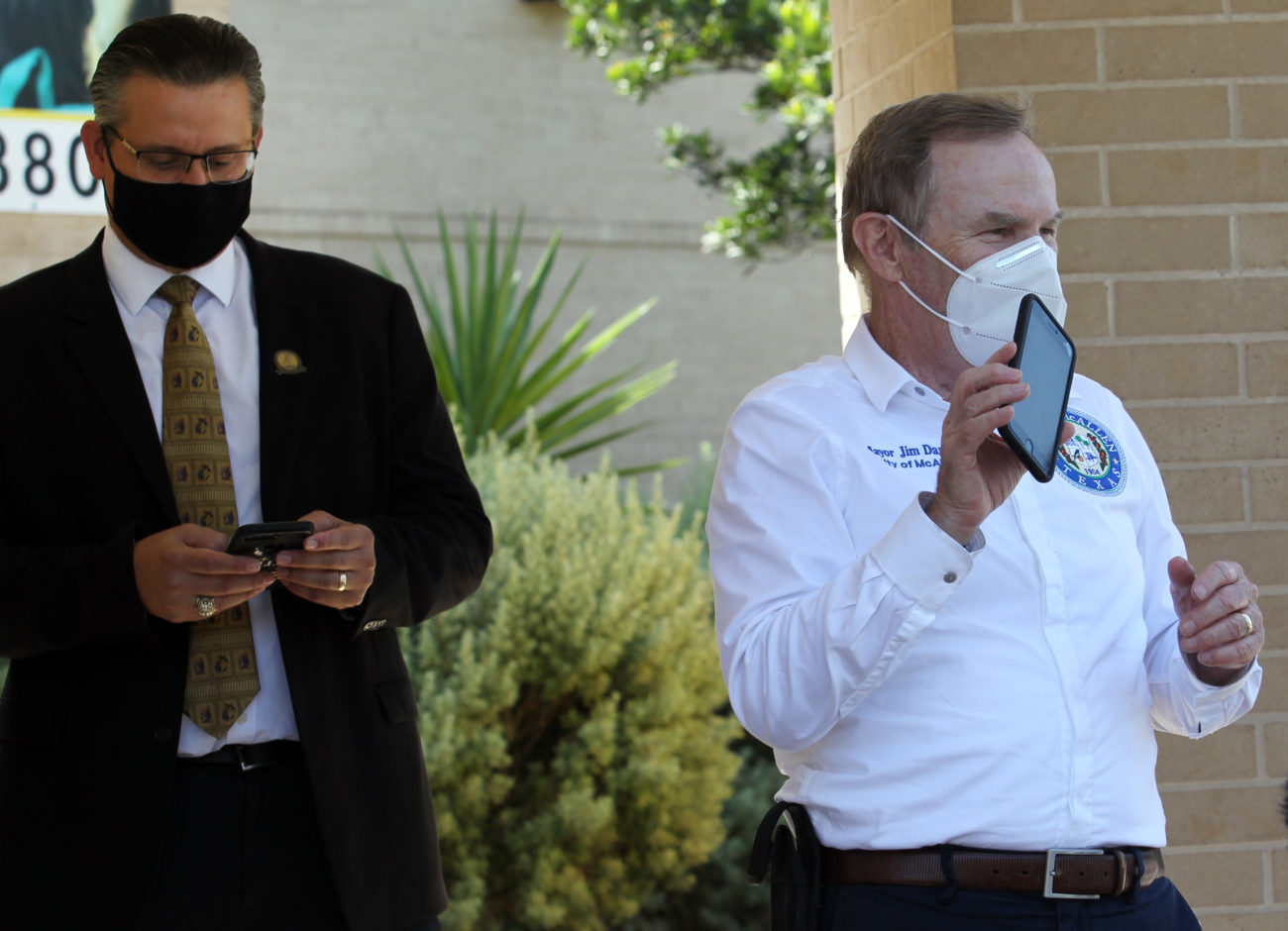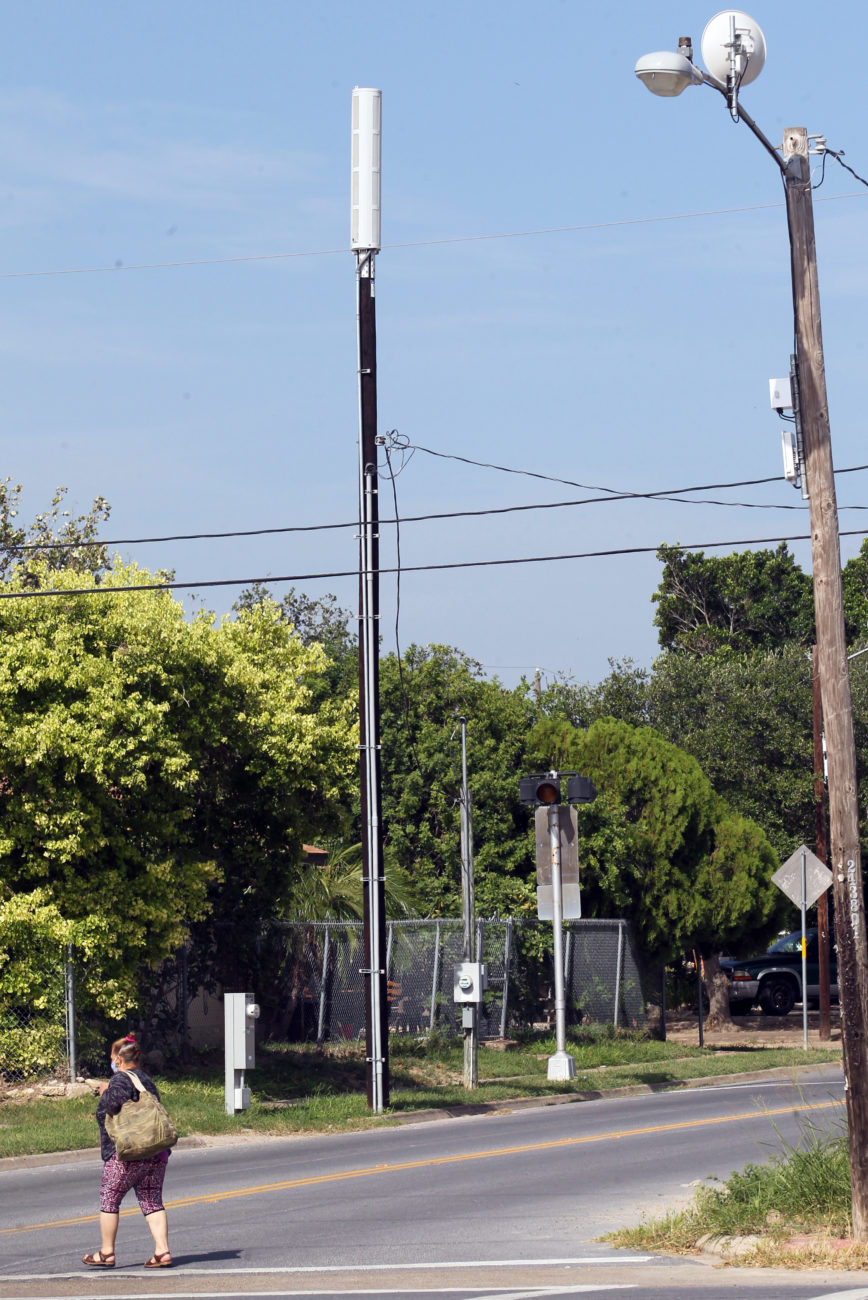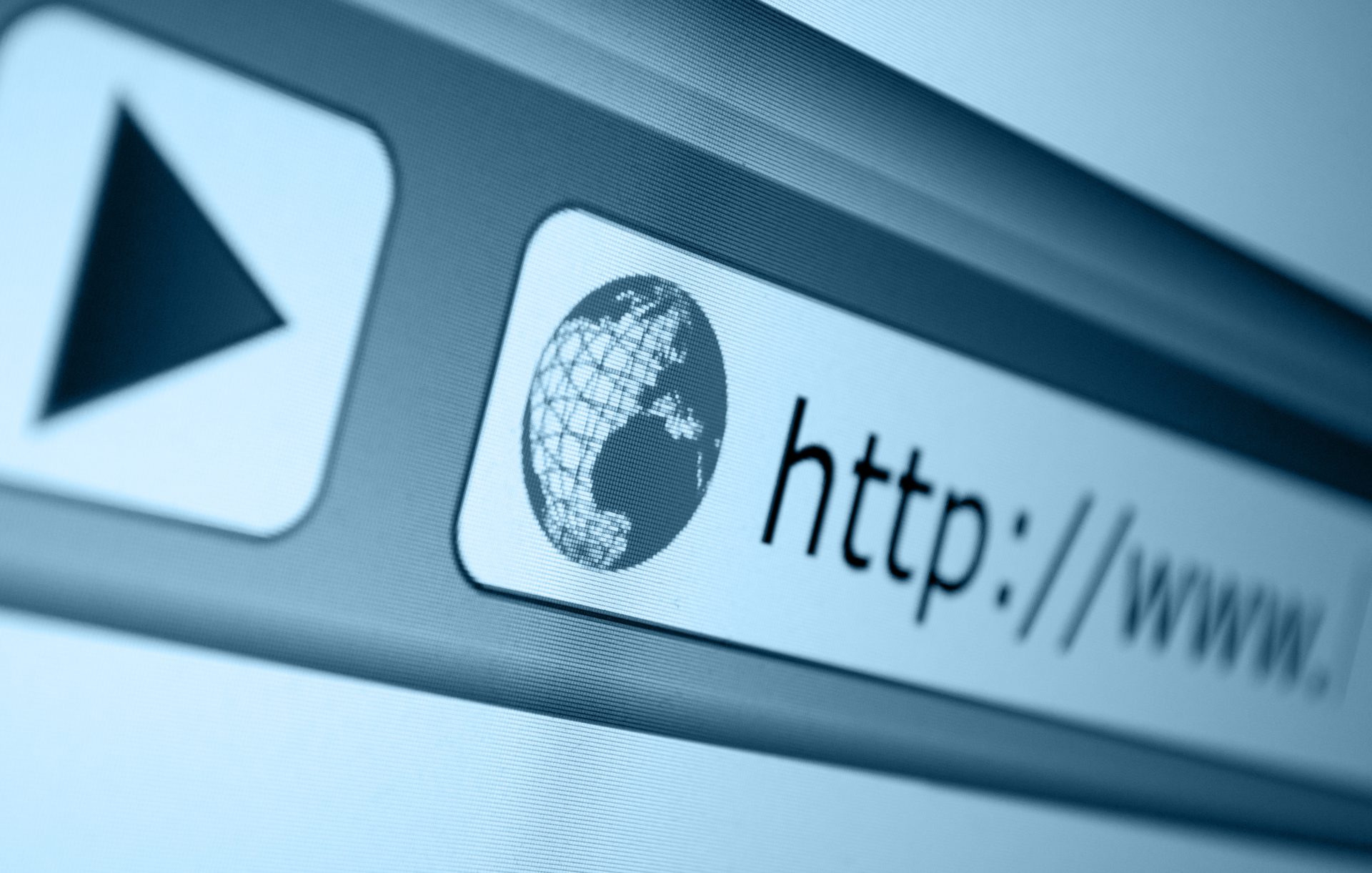|
Only have a minute? Listen instead
Getting your Trinity Audio player ready...
|
McALLEN — When the COVID-19 pandemic first shut down schools in the spring of 2020, local leaders found themselves facing a different crisis: how to continue educating students who could no longer go to their classrooms.
In the digital age, the answer seemed simple: hold online classes where both teacher and student could attend from the socially distanced safety of their own homes.
But in a place like the Rio Grande Valley, where more than a fifth of the population lives below the poverty line, that answer was far more complicated.
The digital divide here was more of a yawning chasm that threatened to keep thousands of children from accessing school for what was then an interminable amount of time.
Leaders in McAllen, however, saw the pandemic as a catalyst for making a pipe dream reality.
“Mayor Darling has always, always wanted to do this, but the problem was that the technology wasn’t there back then,” McAllen IT Director Robert Acosta recently said.
Acosta was speaking of plans former McAllen Mayor Jim Darling had to make broadband internet more accessible to McAllen residents.
However, when the pandemic stopped the world in its tracks, there were some silver linings, including an influx of federal funds earmarked for expanding broadband infrastructure.
As a result, McAllen was able to use some $3 million in COVID-19 relief funds via the CARES Act to connect some of the poorest neighborhoods in the city.

“It was like a fire was lit. It wasn’t a question of, ‘Can we do it?’ or ‘Should we spend the money?’ It was, just, we know we need to do it. And that came from the commission, the mayor, the city manager,” Acosta said.
“Roy was very proactive in helping us get this approved and get it to the commission,” he added, referring to McAllen City Manager Roel “Roy” Rodriguez.
“We think that it was a huge win for the community that we were able to use those federal funds that we got from COVID,” Rodriguez said after a McAllen City Commission meeting Monday.
The city, in collaboration with McAllen ISD, identified “hotspots” throughout town where families with lower incomes lived.
Once those areas were identified, the city got the go-ahead from local electricity providers to place the access points on their utility poles.
“Both AEP and Magic Valley, both of them helped out and they were tremendous,” Acosta said.
Within 90 days, Acosta’s department had set up approximately 1,000 Wi-Fi “access points” on light poles across McAllen.
The access points allowed students to access the internet from home, rather than having to search out places to find free Wi-Fi, such as city parks, where they would be at the mercy of the elements.
“I think we covered probably about 65-70% of the city, of coverage, in those areas,” Acosta said.

Now, more than three years later, city officials are proud if what they were able to accomplish over such a short timeframe.
They’re prouder still that the Wi-Fi access points continue to be an important resource for McAllen’s most disadvantaged populations.
“It’s very gratifying. Again, that’s one of the highlights that COVID brought to our attention is that intense need. The magnitude of that need was so big and I’m just glad that we were able to do it,” Rodriguez said.
Even now, between 3,000-3,500 devices connect to the access points every day, Acosta said.
What began with $3 million in startup funding from the federal government has now become the city’s commitment to continuing the service.
It costs McAllen about $150,000 per year to maintain and operate the access points, including rental fees for the power poles they’re attached to.
Nonetheless, Rodriguez described being able to provide the Wi-Fi service as “a huge win for our community.”




